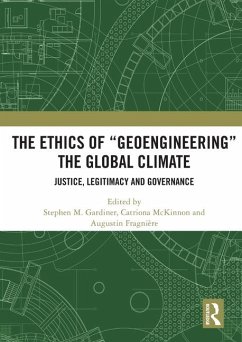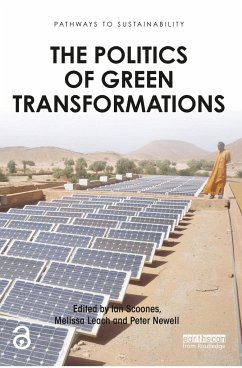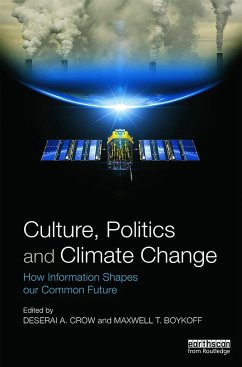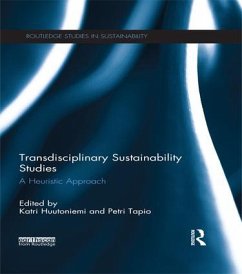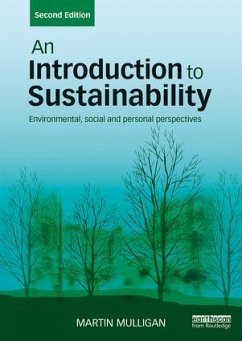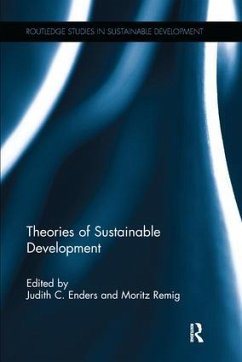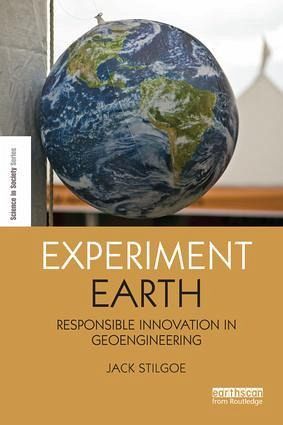
Experiment Earth
Responsible innovation in geoengineering
Versandkostenfrei!
Versandfertig in 6-10 Tagen
49,99 €
inkl. MwSt.
Weitere Ausgaben:

PAYBACK Punkte
25 °P sammeln!
Experiments in geoengineering - intentionally manipulating the Earth's climate to reduce global warming - have become the focus of a vital debate about responsible science and innovation. Drawing on three years of sociological research working with scientists on one of the world's first major geoengineering projects, this book examines the politics of experimentation. Geoengineering provides a test case for rethinking the responsibilities of scientists and asking how science can take better care of the futures that it helps bring about.This book gives students, researchers and the general read...
Experiments in geoengineering - intentionally manipulating the Earth's climate to reduce global warming - have become the focus of a vital debate about responsible science and innovation. Drawing on three years of sociological research working with scientists on one of the world's first major geoengineering projects, this book examines the politics of experimentation. Geoengineering provides a test case for rethinking the responsibilities of scientists and asking how science can take better care of the futures that it helps bring about.
This book gives students, researchers and the general reader interested in the place of science in contemporary society a compelling framework for future thinking and discussion.
This book gives students, researchers and the general reader interested in the place of science in contemporary society a compelling framework for future thinking and discussion.





